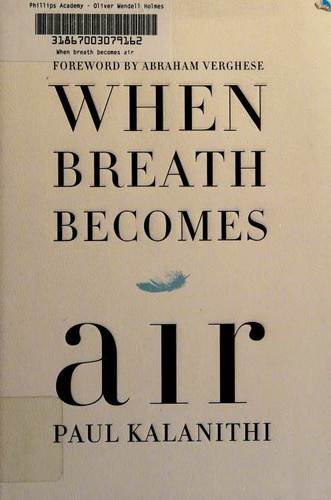Summary of “When Breath Becomes Air” by Paul Kalanithi
“When Breath Becomes Air” is a poignant memoir written by Paul Kalanithi, a neurosurgeon who was diagnosed with terminal lung cancer at the peak of his promising medical career. The narrative intertwines his journey through medicine with profound reflections on mortality and the search for meaning. This summary delves into the critical insights offered by Kalanithi, compares them with similar themes in other literature, and provides a comprehensive analysis of the core concepts and themes addressed in the book.
Part 1: Core Frameworks and Concepts
Paul Kalanithi’s memoir is not merely a recounting of his personal journey but also serves as a thoughtful exploration of life’s deepest questions. To enrich this exploration, we can compare Kalanithi’s narrative to Viktor E. Frankl’s “Man’s Search for Meaning” and Atul Gawande’s “Being Mortal.”
Framework of Meaning
Kalanithi’s quest for meaning in the face of his terminal diagnosis is reminiscent of Viktor Frankl’s logotherapy, a psychotherapeutic approach that focuses on finding a purpose in life. Frankl, a Holocaust survivor, argues that suffering is unavoidable, but the way we respond to it can be a source of meaning. Similarly, Kalanithi emphasizes that the search for meaning is crucial, especially when confronted with mortality.
Example: Finding Purpose in Adversity
Just as Frankl found purpose in the dire circumstances of a concentration camp, Kalanithi found meaning in the continuation of his work and writing, despite his illness. Both narratives accentuate the human capacity to transcend suffering through the pursuit of purpose.
Transition from Doctor to Patient
Kalanithi’s transition from a doctor to a patient offers a unique perspective that enhances our understanding of the patient experience. This dual perspective is similarly explored in Atul Gawande’s “Being Mortal,” where the focus is on the limitations of medicine and the importance of quality of life.
Example: Empathy and Understanding
Kalanithi’s insights as both a caregiver and a patient reveal the profound empathy required in the medical profession. His personal experience underscores the necessity for doctors to understand their patients not just medically, but personally.
Confronting Mortality
The confrontation with mortality is a central theme in “When Breath Becomes Air.” Kalanithi reflects on his impending death with a philosophical lens, questioning what makes life worth living.
Example: Philosophical Reflection
Kalanithi’s reflections are deeply philosophical, akin to the existential musings found in philosophical texts. His contemplation of mortality leads to a greater appreciation for life’s fleeting moments, much like in Mitch Albom’s “Tuesdays with Morrie,” where conversations about death become lessons in living.
Legacy and Impact
Kalanithi’s work emphasizes the legacy one leaves behind, not just in professional accomplishments but in personal connections and contributions to others’ lives.
Example: Lasting Influence
His memoir itself stands as a testament to his desire to leave a meaningful legacy. This mirrors themes in Randy Pausch’s “The Last Lecture,” where the focus is on leaving a lasting impact through teaching and personal stories.
The Role of Literature and Arts
Kalanithi’s love for literature and the arts plays a significant role in shaping his worldview and his approach to medicine.
Example: Bridging Science and Humanities
The integration of literature into his medical career demonstrates the importance of a holistic approach to understanding human experiences. This concept is explored in “The Emperor of All Maladies” by Siddhartha Mukherjee, where the narrative of cancer is interwoven with historical, scientific, and personal stories.
Part 2: Key Themes
1. The Duality of Doctor and Patient
Kalanithi’s experience as both a doctor and a patient provides a unique insight into the healthcare system. He navigates the complexities of medical care from both perspectives, offering a nuanced understanding of the emotional and ethical challenges faced by healthcare providers.
2. The Search for Meaning
Kalanithi’s journey is a testament to the human desire to find meaning, even in the face of death. His reflections on what makes life worth living echo the existential questions posed by philosophers throughout history.
3. The Nature of Time
The memoir explores how the perception of time shifts when faced with a terminal diagnosis. Kalanithi’s altered relationship with time emphasizes the importance of living in the present and cherishing each moment, a theme that resonates with the notion of time as a relative and subjective experience.
4. The Intersection of Art and Science
Kalanithi’s passion for literature and medicine highlights the synergy between the arts and sciences. His ability to draw from both disciplines enriches his understanding of the human condition and enhances his empathy as a physician.
5. Legacy and Memory
The question of what one leaves behind becomes a focal point as Kalanithi reflects on his life. His determination to contribute meaningfully to the lives of others underscores the enduring impact of personal legacy.
Final Reflection
“When Breath Becomes Air” is not only a memoir but a profound meditation on life’s ultimate questions. Through Kalanithi’s journey, we are reminded of the importance of purpose, the complexity of human experiences, and the enduring power of empathy and connection. This narrative invites readers to reflect on their own lives and consider how they confront challenges, find meaning, and define their legacies.
In synthesizing Kalanithi’s insights with those of Frankl, Gawande, and others, we see a cross-domain relevance that extends beyond personal growth to leadership and change. Leaders, like Kalanithi, must navigate uncertainty, find meaning in adversity, and leave a positive impact on those they guide. This memoir serves as a powerful reminder of the resilience of the human spirit and the enduring quest for meaning in the face of life’s impermanence.

